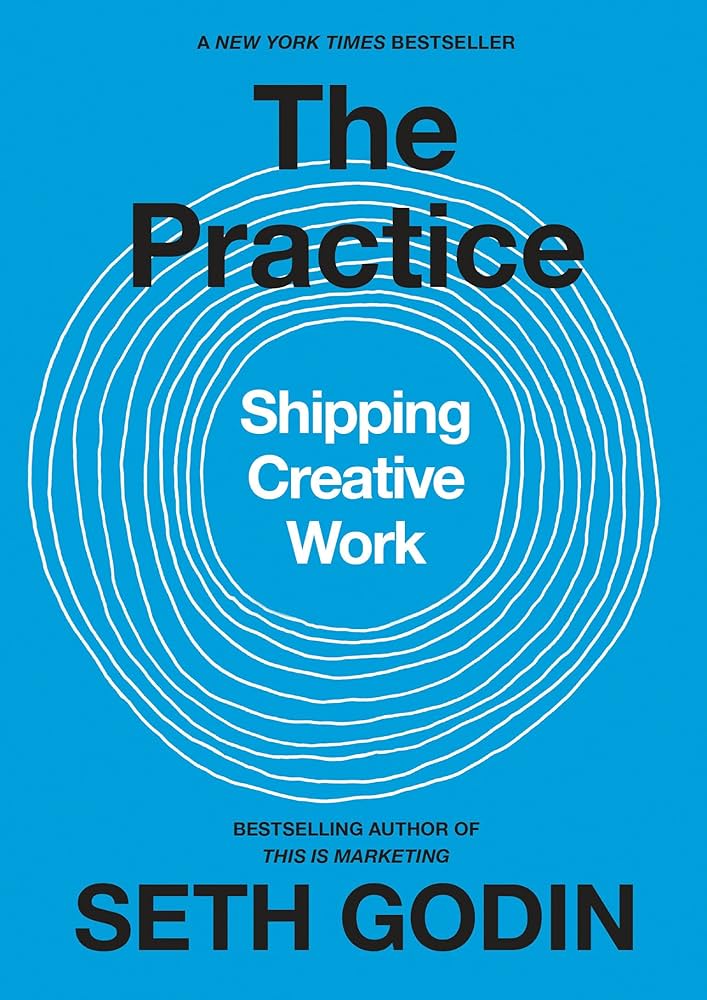
Review
If you’re creative and struggling to get stuff done this is book is the one. It’s a reminder that you don’t have to wait for inspiration, you’re not beholden to that magical force, you have control.
Now… I’m off to workout how I can periodically send these notes to my future self.
Key Takeaways
The 20% that gave me 80% of the value.
- Ship Creative Work.
- The magic is that there is no magic. Start where you are. Don’t stop.
Approach Creativity With Professionalism
- You are creative because you ship. Ship work on a schedule, without attachment
- You earn skill through hard work. Skill is rarer than talent.
- Work is investing time in what you can control. Worry is the opposite.
- You can earn better taste, judgement and capabilities.
- Be consistent, even at the expense of authenticity.
- Focus on better practice, on consistency and longevity
- Learn your field. Study the greats, read the classics.
- First become the best in the world. Make a super power. Outsource the rest
Share what you’ve made
- It only counts if you share.
- Sharing helps you learn from feedback
- Hiding because you’re afraid is worse than rejection
- Don’t protect a special idea. There will always be more.
- Consistent practice builds self-trust. Helps you share.
- We can’t control or measure confidence as its a feeling. Don’t let it hold you back.
- There is never enough reassurance. It’s futile.
- Overcome resistance by shipping to be generous
- Overcome resistance by consistently practicing which builds self-trust
- There are 100x more critiques than creators.
- Promise to ship. Don’t promise the result.
- Work is never good enough for everyone, but it’s already good for someone
Focus on the few, not everyone
- Find 10 people who care enough to enroll in your journey and share your work
- What do they believe? What do they love doing?
- Create for your audience. Don’t worry what ‘everyone’ thinks’.
- Balance empathy with “its not for you”
- We have to be able to say ‘It’s not for you’ and mean it
- Be more and more specific.
- Don’t sacrifice your point of view to attract the masses
- Great architects need to secure great clients to do great work. It’s part of it.
First do the work. The identity and the passion will follow.
- You become what you do.
- You can only identify your calling or passion, after doing the hard work.
- Doing in front of others will cement your identity.
Now is the best time to start
- Start where you are. Begin.
- Do art to make a change, to help others.
- We all have more leverage than ever before.
- Don’t wait to be picked.
- Practice improves your work. Credentials don’t.
- Conditions will never be perfect. Start.
- Everyday doors shut on the better tomorrow you imagined. Take your chance.
- Roadblocks stop everyone. Excuses stop the fainthearted. Know the difference.
- There’s a tradeoff between polishing and sharing. Polishing is overrated.
- Don’t start with a masterpiece. Make something small and share it.
Practice consistently. Don’t wait to be in the mood.
- Creativity is a choice. Don’t wait for inspiration. Practice and it will come.
- Don’t wait for perfect conditions. Practice in all weathers.
- Learning to work without flow induces more time in flow.
- Writers block is an internal narrative. Write badly to get unstuck.
- Asimov typed daily. He got to 400 books because typing turns to writing.
- Just as batting practice is practice, writing everyday is practice. Professionals don’t stop.
Failure happens. Detach from the outcome. Improve your practice
- Practice as if the journey is the goal.
- Improve your practice. Don’t worry about the outcomes.
- If its not working yet, just add more cycles
- Consistent practice brings improvement, which helps you trust in the process
- Art is doing something that might not work. Failure is part of it. Don’t try and make success certain.
- Bad ideas unlock good ideas. Bad ideas are essential
- Do you. Everyone else is taken. Don’t sound like everyone else to avoid criticism
- You create narratives about the world that inform your choices. But are they accurate? Are they helping you achieve your goals?
- The game is infinite. No scoreboard, no winners and no rules. Ship to contribute not to win
- Find and embrace constraints. They help create art.
- Low expectations mean low oversight and more freedom